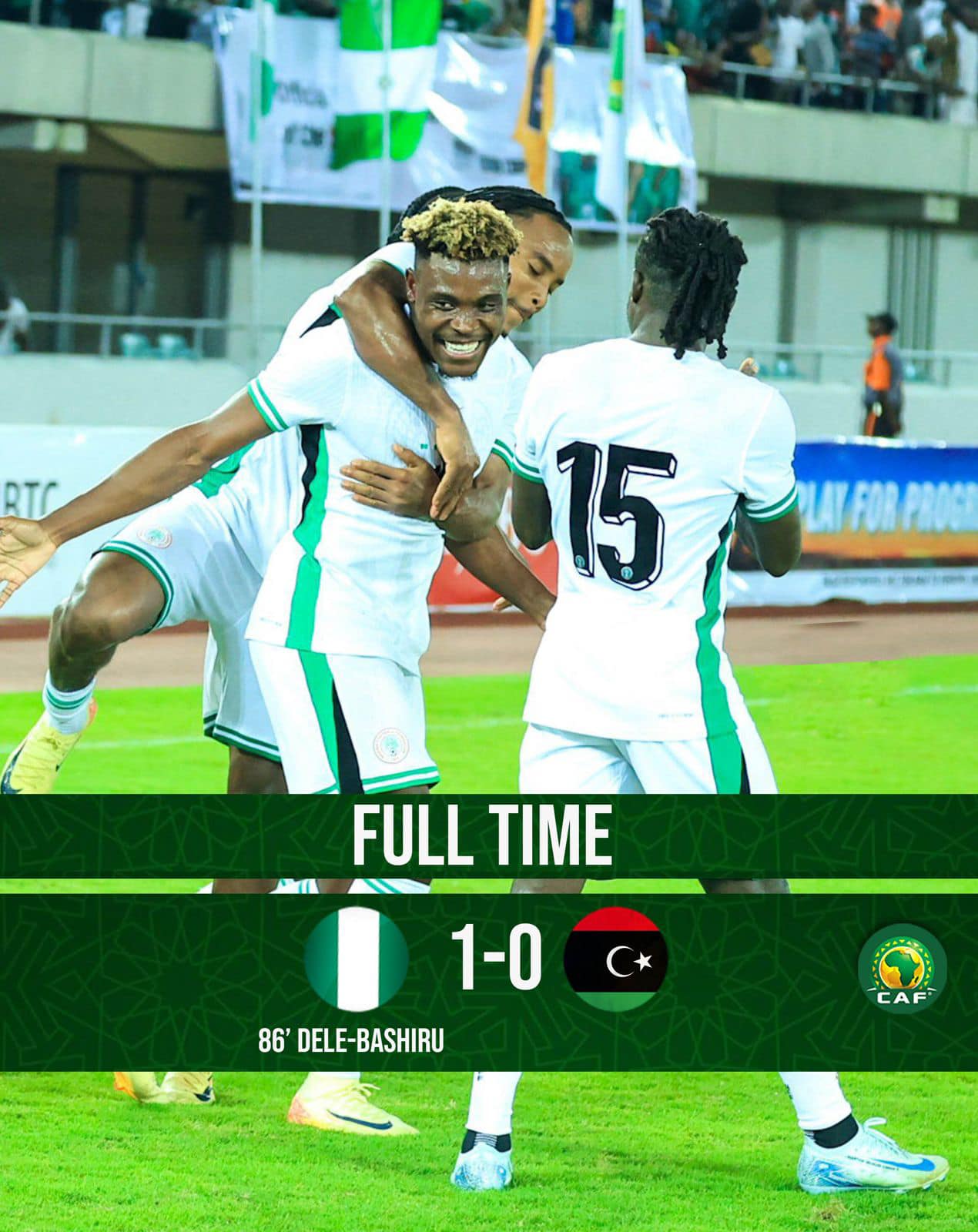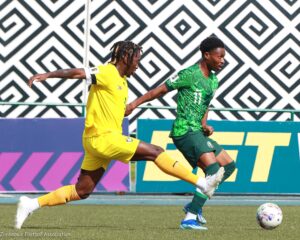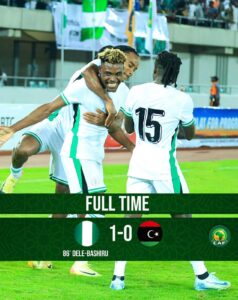
The recent saga involving the Senior National Football Team of Nigeria, the Super Eagles, in Libya has generated significant debates and raised critical questions not just about the intersection of sports in this case football and the law, but also the readiness of the Confederation of African Football (CAF) to uphold the letters of its regulations.
The events of the past couple of hours in Libya, the discussions of the authorities, the good, the bad and the ugly would therefore become a focal point for scrutiny.
This situation not only highlights the complexities of international football governance but also reveals the potential legal ramifications that can arise from a clash of interests between national pride and regulatory compliance.
In this short piece, we will delve into the legal issues stemming from the Libya incident, examining how they could impact the parties involved reflecting on the REGULATIONS of the AFRICA CUP OF NATIONS (The Regulations).
We would now proceed to these Articles on the presumption that the drama which unfolded in the last couple of hours has now been fully digested by all and sundry. The Africa Cup of Nations is organized in two phases, ‘a qualifying phase’ and ‘a final phase’ (See Article 3 of the Regulation).
The match under the current discourse falls under Article 3 (3.1) of the Regulations which the Organising Committee of the Africa Cup of Nations have the charge of elaboration on both regulations governing the competition, and the organization of the competition. For the qualifying phase, the Organising Committee is competent to amongst other things ‘take decisions relative to any complaint’ and in emergency cases ‘take decisions by correspondence or by fax or email’ (See Articles 4.2.3 and 4.2.7 of the Regulations).
It is interesting to note that Article 16.9 of the Regulations provides that ‘the matches shall be played in compliance with the Laws of the Game’.

The Laws of the Game always engenders fair play, before, during and after games. This is a ‘crucial foundation of the beautiful game and a vital feature of the spirit of the game’. (See The Laws of the Game 24/25: The Philosophy and Spirit of the Laws, P. 11).
Fair play means extending warm hands of welcome and according all due hospitality to a visiting team in the context of a football match. Article 16.14 of the Regulations provides that ‘if there is an international airport in the city where the match will be held or near that city by less than 200kms; and if the visiting team wishes to land directly at this airport; the host association must facilitate all formalities for entry’.
In the light of the regulations stipulating that the host association, Libya Football Federation must facilitate all formalities for the entry of the visiting team, the Super Eagles of Nigeria, the inability of the Libyan authorities to ensure a smooth entry process for the Nigerian team represents a significant breach of these obligations.
The Regulations are designed to promote fair play and ensure that visiting teams can participate in matches without undue hindrance.
By not facilitating the necessary entry requirements, the Libyan Football Federation not only undermined the spirit of the regulations but also compromised the integrity of the match itself and potentially the integrity of the Confederation of African Football (CAF).
The Regulations are in place to accord protection to the rights of visiting teams, ensuring that they can travel, enter, and compete without facing unnecessary barriers.
The lack of support from the Libyan Football Federation constitutes a violation of these regulatory standards, which are meant to foster a conducive environment for international matches.
The repercussions of this oversight extend beyond mere logistics; they impact the reputation of both the Super Eagles and Nigerian football (I am sure you saw all the pictures trending online. (Pictures of our top stars sleeping at the airport, stranded for long hours).
There is an urgent need for CAF to uphold the regulations and ensure that all member associations adhere to their commitments.
We have seen comments suggesting that what could have happened in Libya was a form of ‘reciprocity’ alleging similar treatment in Nigeria.
This does not hold water as credible evidence in the public domain already suggest.
We would not go into the details of this as it could be pleaded during the proper potential hearing of this matter before the relevant bodies of CAF.
More troubles could be in the coffers for the Libyan Football Federation because ‘the host association that does not provide to the visiting team and the designated match officials all the facilities mentioned in the present regulations, shall reimburse all the expenses without prejudice to the sanctions that the Organizing Committee may impose upon it subsequently’. (See Article 29 of the Regulations).
The Regulations outline reception requirements under Article 31 covering ‘reception at the airport’, ‘transport facilities’, ‘accommodation’, ‘security measures’, and ‘seeing the visiting team off’.
We promised to make this brief and so we would conclude by observing that if the present incident has not been foreseen by the regulatory authority and captured in the current regulation, by Article 117 ‘matters not provided for in the present regulation shall be decided by the Organizing Committee’.
Sanctions to be meted out are multifaceted but we would not also reflect upon that at this moment.
Many layers of this debacle would still be unpacked with the passing of days, but for now let’s celebrate the safe return of the Super Eagles to motherland.
By Amobi Ezeaku ESQ




